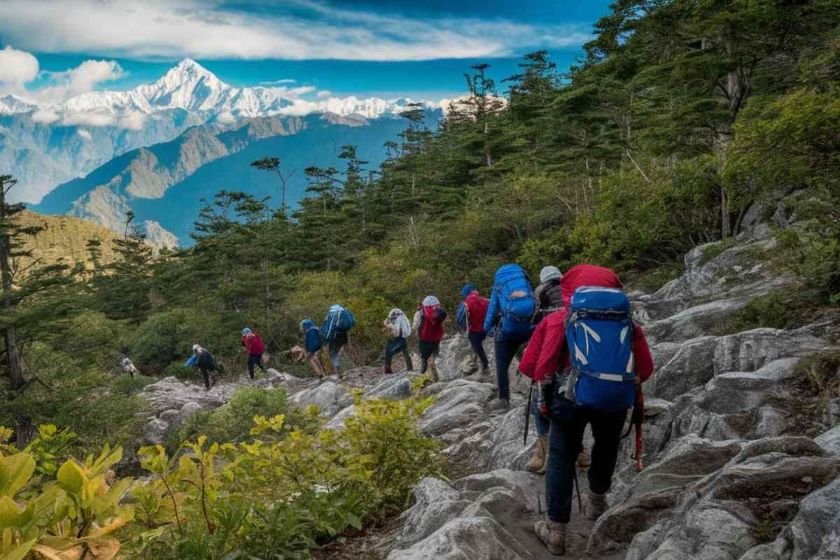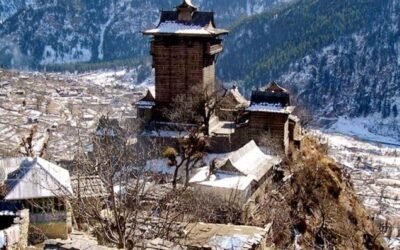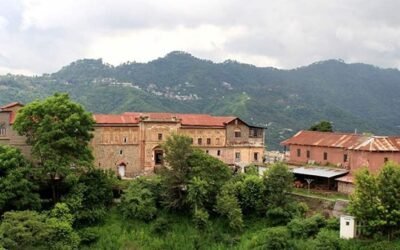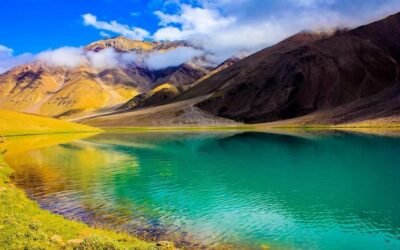📍 Location: ~18 km from Shimla, connecting Kufri to Fagu via Mahasu Ridge
📅 Season: March–June & September–November for clear skies and forest walks
A forested ridge where the trail curves through mist and memory, and the Himalayas rise like silent sentinels
🥾 Trail Overview & Terrain
The Kufri–Fagu Trail is a moderate 5–7 km walk, ideal for slow travelers and nature lovers:
- Begins near Kufri’s Mahasu Peak, the highest point in the area
- Passes through dense deodar and blue pine forests, with occasional apple orchards
- Offers views of Kedarnath, Badrinath, and Pir Panjal ranges on clear days
- Ends at Fagu, a quiet hamlet known for its terraced fields and orchard belts
🌄 The trail is often mist-laced in the mornings, with birdsong and rustling leaves as your only companions
🌿 Flora, Fauna & Forest Charm
- Home to Himalayan monals, barking deer, and pheasants
- Rich in wildflowers, ferns, and medicinal herbs
- Green Valley, visible en route, is a lush depression known for grazing yaks and panoramic photography
🐾 The forest canopy creates a natural soundscape, ideal for meditation and journaling
🛕 Cultural & Scenic Highlights
- Nag Devta Temple near Mahasu Peak, a spiritual pause with local lore
- Fagu Church and Banthia Devta Temple at the trail’s end, reflecting colonial and folk heritage
- Café Horizon in Fagu offers tea with a view, perfect for post-hike reflection
🪔 The trail is often used by locals during festivals, carrying offerings and singing folk hymns
🧭 Plan Your Walk
| 🗺️ Trail Tips | 🏡 Stay Options |
|---|---|
| Start early from Kufri (~2,720 m) to avoid fog | Zostel Cheog, Woodays Resort, or homestays in Fagu |
| Carry water, snacks, and binoculars | Combine with Cheog, Tani Jubbar Lake, or Kotkhai |
| Trail is well-marked but unpaved | Best time: Spring & Autumn for clear views and blooming flora |
✨ Why It Belongs in Your Guide
The Kufri–Fagu Trail reflects:
- Shimla’s quiet and scenic soul
- A living corridor between forest, faith, and farming
- A sanctuary for slow travel, where every step is a story
It’s not just a trail—it’s a pine-scented passage through cloud, culture, and calm.




